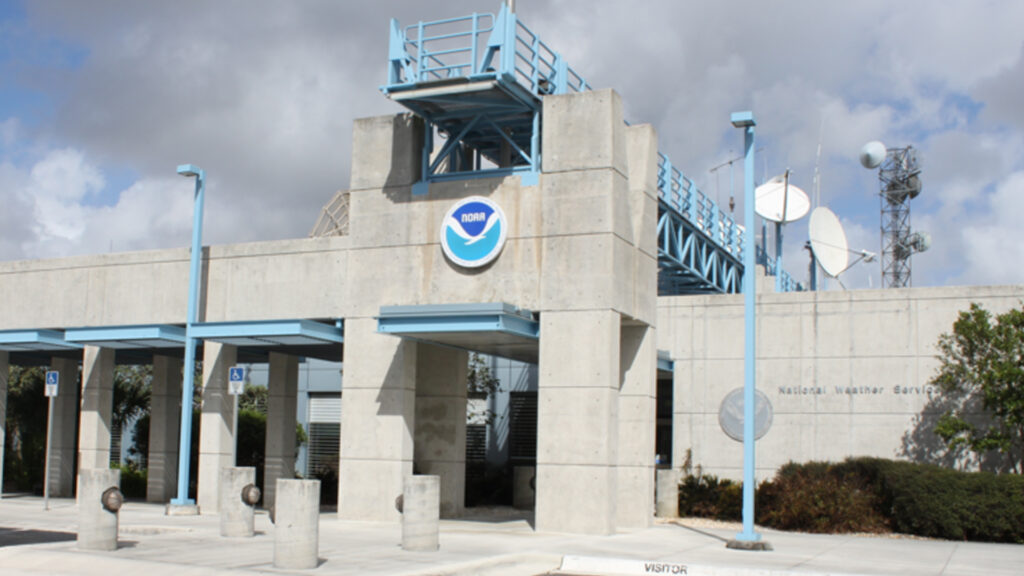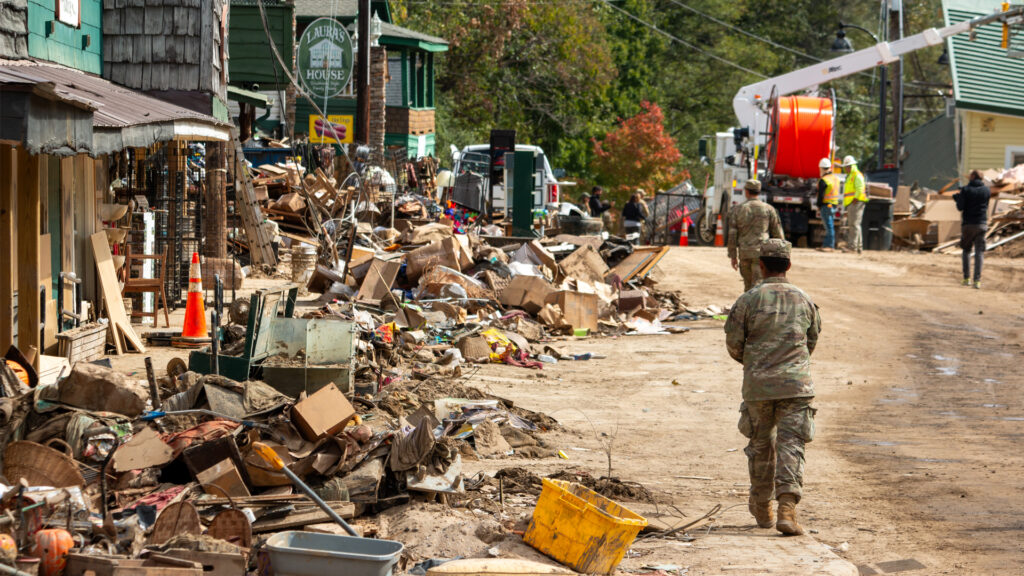By the Orlando Sentinel Editorial Board
June 1 marked the official start of hurricane season. And Floridians know, for sure, that there is a storm coming.
But when? Where? How bad will it be, and how much help can the state expect as it rebuilds? Those are questions that can’t be answered.
That’s because this storm is of human origin — a swirling morass of short-sighted buyouts pushed by Donald Trump’s DOGE bounty hunters, potential budget cuts and a threatened shift in the way the nation funds disaster recovery.
Even if Florida dodges a direct hit by a major hurricane this year, the uncertainty of storm-prediction capabilities and recovery aid are likely to drive Florida’s property insurance industry into a maelstrom of uncertainty, potentially fueling catastrophic rate increases.
The only hope lies in restoring the hard-won stability that, until last year, Floridians had grown to rely on. And there’s still a chance for two key leaders — our U.S. senators, Ashley Moody and Rick Scott — to defend Florida’s chances of surviving brutal storm seasons.
Both have ample reason to know what’s at stake. Moody, who until recently served as state attorney general, witnessed the aftermath of Hurricane Ian, which caught southwest Florida underprepared for a last-minute course shift. As governor, Scott oversaw turbulent storm seasons, including 2017, when Hurricane Irma forced the largest mass evacuation in the nation’s history.
Both of them witnessed the slow, painful slogs to recovery every time a major storm hit Florida. As the Senate responds to the starvation-level budget approved by the House last month, they owe it to Floridians to tilt the national spending plan back to rationality.
Don’t shortchange warnings

That includes repairing the tattered U.S. weather-monitoring system by filling more than 550 vacancies at the National Oceanic and Atmospheric Administration and the National Weather Service. The nation needs qualified meteorologists and scientists, whose predictions give storm-vulnerable areas the best chance of bracing for impact — and no state needs help more than Florida, which has incurred more hurricane losses than any other state over the past 10 years.
And no state would suffer as badly as Florida if the current situation persists. Geography is obviously a factor: The state is exposed to both Gulf and Atlantic storms, which can rake any point in its nearly 8,500 miles of shoreline and often shift course with little warning. Reporting by CBS and the Miami Herald show that NWS and NOAA outposts across the state are critically understaffed — something called out in a letter signed by five former heads of the NWS.
“NWS staff will have an impossible task to continue its current level of services. Some forecast offices will be so short-staffed that they may be forced to go to part-time services,” they wrote. The loss of forecasters is compounded by the short staffing among technicians responsible for maintaining the radar arrays that detect and analyze storm activity.
“Our worst nightmare is that weather forecast offices will be so understaffed that there will be needless loss of life,” they wrote. That should be everyone’s fear.
Reconstituting the nation’s storm-prediction resources won’t be easy. There are only so many qualified meteorologists, radar technicians and other critical personnel to fill these vacant positions, and many who departed took retirement deals that could complicate attempts to rehire them — a clear illustration of the penny-wise, pound-foolish impact of DOGE’s blindly draconian cuts. Any delay in fixing the damage could be fatal for as-yet uncountable Floridians.
Picking up the pieces
Scott and Moody must also make it clear that federal aid will be available to any part of this nation hit by natural disasters.
Recent actions by the Trump administration — denying federal aid for other parts of the nation that have been hit by devastating storms and other emergencies — make the warning even sharper. The Federal Emergency Management Agency is holding back funding that was promised months or even years ago, while denying emergency aid. Among the rejected pleas: Aid for a Washington state town that was three-quarters destroyed by wildfire, and help following an Arkansas storm event with tornadoes and giant hail that killed three people.

Most alarming, the administration slashed funding last week for North Carolina’s Hurricane Helene recovery, a storm that left 230 people dead and thousands without power for weeks. Ironically, Trump blasted the Biden administration in January for not doing enough to help Helene’s victims.
These incidental denials could be just the start. If President Trump makes good on his threat to shift disaster response to the states, Florida and other states on the front lines of climate change will be the first to suffer. While the president may speak deceptively of “reform,” Secretary of Homeland Security Kristi Noem has been far more blunt: She wants to shut FEMA down.
And while we appreciate Scott’s sense of timing, taking a tour of Florida to promote disaster preparedness, this is not a burden that can be carried by Florida residents and businesses alone.
That’s why Scott, Moody and other GOP senators in disaster-prone states should join forces and make it clear: The nation should not abandon Florida and other states to the winds of fate.
Certainly the nation’s disaster-recovery framework could be improved. But an abrupt denial of funding now could carry devastating consequences — not just for states on the front lines, but on the nation. Floridians have the right to expect their senators to defend their interests.
The Orlando Sentinel Editorial Board consists of Opinion Editor Krys Fluker, Executive Editor Roger Simmons and Viewpoints Editor Jay Reddick. This opinion piece was originally published by the Orlando Sentinel, which is a media partner of The Invading Sea. Banner photo: An aerial view of damage caused by Hurricane Ian (iStock image).
Sign up for The Invading Sea newsletter by visiting here. To support The Invading Sea, click here to make a donation. If you are interested in submitting an opinion piece to The Invading Sea, email Editor Nathan Crabbe at nc*****@*au.edu.



